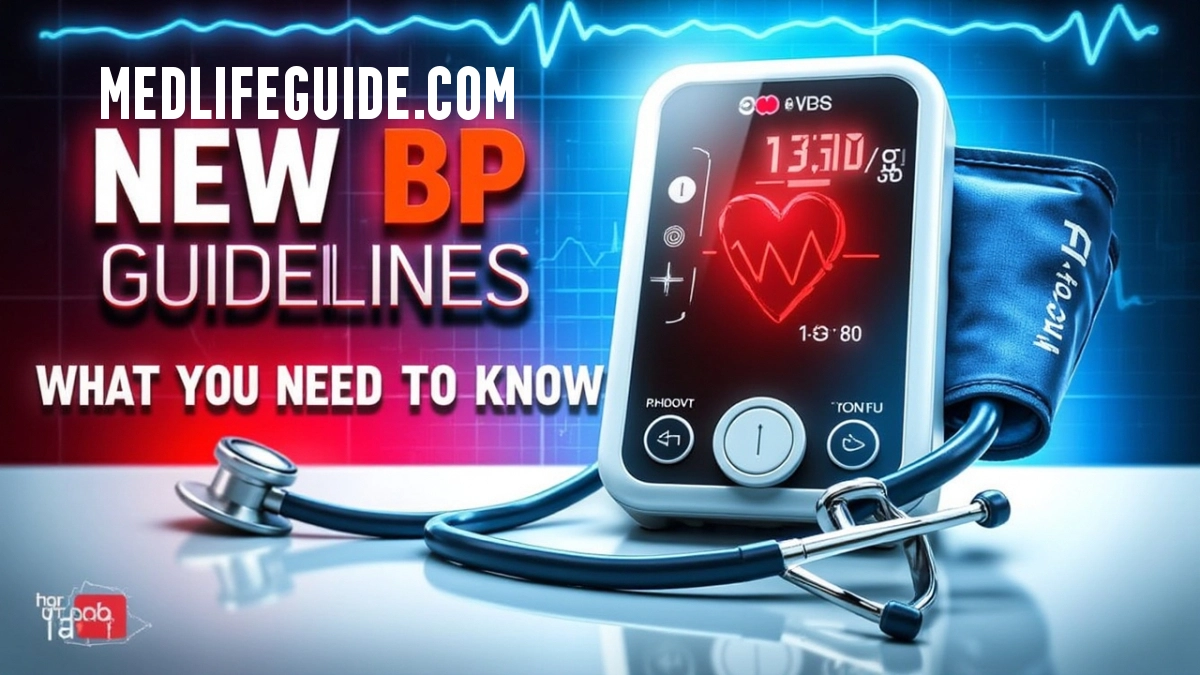High blood pressure (hypertension) is a silent killer, affecting nearly half of all adults in the U.S. In 2025, leading health organizations released updated new blood pressure guidelines, refining diagnostic thresholds and treatment approaches. But what do these changes mean for you?
This article breaks down the latest recommendations, explains wh
High blood pressure (hypertension) is a silent killer, affecting nearly half of all adults in the U.S. In 2025, leading health organizations released updated new blood pressure guidelines, refining diagnostic thresholds and treatment approaches. But what do these changes mean for you?
This article breaks down the latest recommendations, explains why they matter, and provides actionable steps to keep your heart healthy.
What Are the New Blood Pressure Guidelines?
The American Heart Association (AHA) and other global health bodies have adjusted blood pressure classifications based on recent research. Here’s a quick comparison:
Old vs. New Blood Pressure Categories
| Category | Old Guidelines | 2025 Guidelines |
|---|---|---|
| Normal | <120/80 mmHg | <120/80 mmHg |
| Elevated | 120-129/<80 mmHg | Now considered “Stage 1” if sustained |
| Stage 1 Hypertension | 130-139/80-89 mmHg | 130-139/80-89 mmHg (earlier intervention needed) |
| Stage 2 Hypertension | ≥140/90 mmHg | ≥140/90 mmHg (more aggressive treatment) |
Key Takeaway: The biggest shift is earlier intervention for Stage 1 hypertension, emphasizing lifestyle changes before medication.
Why Were the Guidelines Updated?
Recent studies, including the SPRINT trial, revealed that:
- Lower targets (130/80 mmHg) reduce heart attack and stroke risks.
- Early lifestyle changes (diet, exercise) prevent long-term damage.
- Racial disparities in hypertension outcomes prompted more inclusive recommendations.
How Do These Changes Affect You?
1. Earlier Detection = Better Prevention
- If your readings are consistently 130/80 mmHg or higher, your doctor may now recommend:
- Dietary changes (DASH diet, reduced sodium)
- Regular aerobic exercise
- Weight management
2. Medication Adjustments
- Those previously in the “elevated” range (120-129/<80 mmHg) may now qualify for lifestyle coaching instead of waiting for higher numbers.
3. More Focus on Home Monitoring
- Home blood pressure cuffs are now strongly recommended for accurate tracking.
Actionable Steps to Manage Your Blood Pressure
- Check Your Numbers Regularly – Home monitors provide better data than occasional clinic visits.
- Reduce Sodium Intake – Aim for <1,500 mg/day if at risk.
- Move More – 150 mins/week of moderate exercise (walking, swimming).
- Limit Alcohol & Quit Smoking – Both spike blood pressure.
- Manage Stress – Meditation, deep breathing, and sleep matter.
Common Questions Answered (FAQ Section)
A: Yes, it’s classified as Stage 1 hypertension, warranting lifestyle changes.
A: Not necessarily—lifestyle adjustments are the first line of defense.
A: If you’re at risk, twice daily (morning/evening) for consistency.
Final Thoughts
The new blood pressure guidelines emphasize early action over waiting for damage to occur. By adopting healthier habits now, you can avoid medication down the road.

